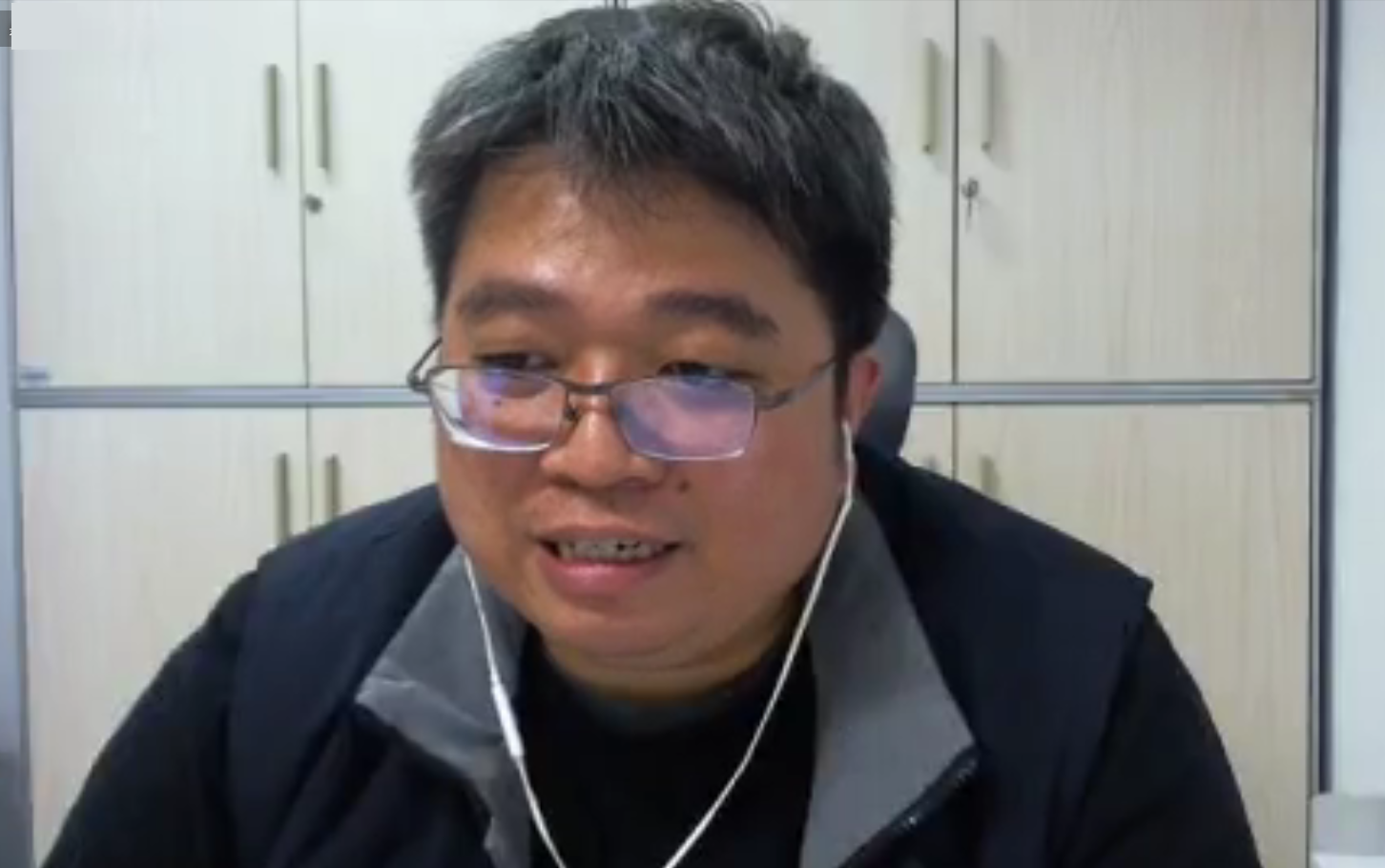Beijing Normal University 6th Smart Learning Academic Week Series --Smart Learning and Education Development Forum was successfully held
date:2021-01-18 15:18author:小编source:Smart Learning Instituteviews:
Guests' speeches
Prof. Chen Guangju, Deputy Director of the Council of Beijing Normal University (BNU), introduced to the guests and audience of the conference the mission of BNU, which is to build a "comprehensive, research-oriented, world-class university in teacher preparation under the Chinese context". Prof. Chen reviewed the achievements of the Academic Week on Smart Learning since its inception, pointed out the importance of holding the Forum on Smart Learning and Education Development at current stage, and expressed his heartfelt thanks to the relevant organizations, experts and scholars who supported the Forum.
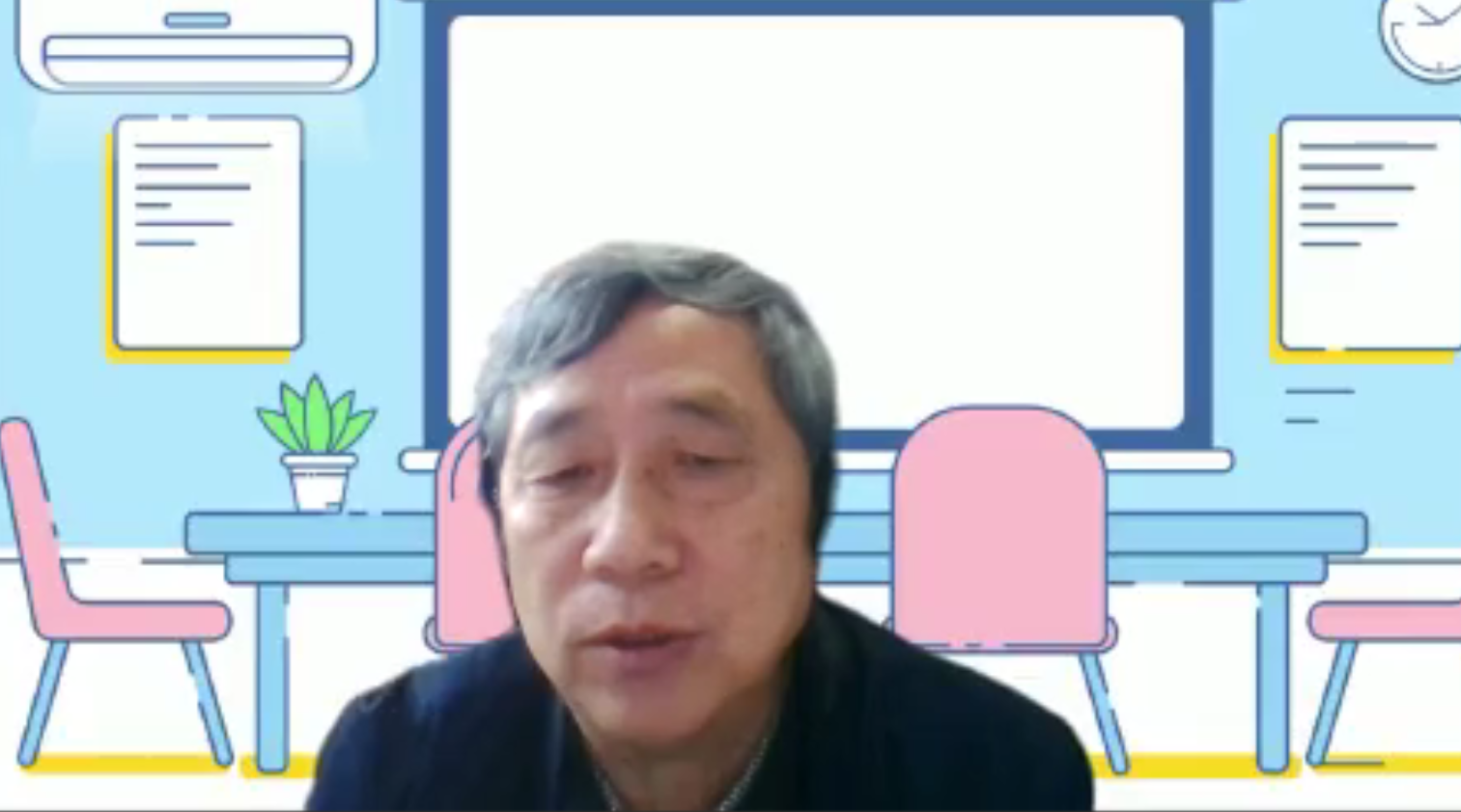
Liu Ruidong, Deputy Director of Science and Technology Commission of Changping District, Beijing, introduced that as the science and technology work management department of Changping District Government, Science and Technology Commission of Changping District has always attached great importance to the cooperation and exchange with universities and research institutes in Changping, and hoped that this time, as the support organization of this forum, it would further promote the bidirectional empowerment of technology and education and help the innovation and development of technology and education.
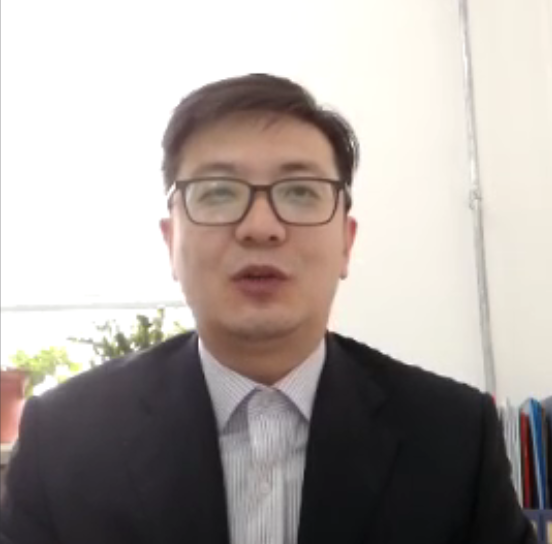
Su Junshan, deputy director of Education Committeee of Beijing Changping District, pointed out that the CoVid-19 pandemic has caused tremendous changes in education , but because of the contemporary technology, education and teaching processes have not stopped. He hoped that the forum would be inspiring, and all sectors would explore education and teaching strategies together. Su hoped that experts would support the development of education and teaching in Changping District.
Virtual reality and education workshop
Keynote Report:
Professor Li Shuangshou from Tsinghua University gave a presentation titled "Thinking and Exploration of Cultivating Innovative Talents for a Strong Manufacturing Country'', in which he gave his thoughts and exploration of cultivating innovative talents for a strong manufacturing country from two levels: understanding change and striving for change. When the mode of production mode of the manufacturing industry is undergoing profound changes, Digital Twin technology can play an important role, and the virtual world should be used to discover potential problems, stimulate innovative thinking and constantly pursue improvement. In order of catering and seeking for changes, Prof. Li introduced the research and application of Internet+ and intelligence+ in the real world of Tsinghua University iCenter, which also includes the Virtual Reality and Human Interface Technology Lab and the National Virtual Simulation Experiment Project.
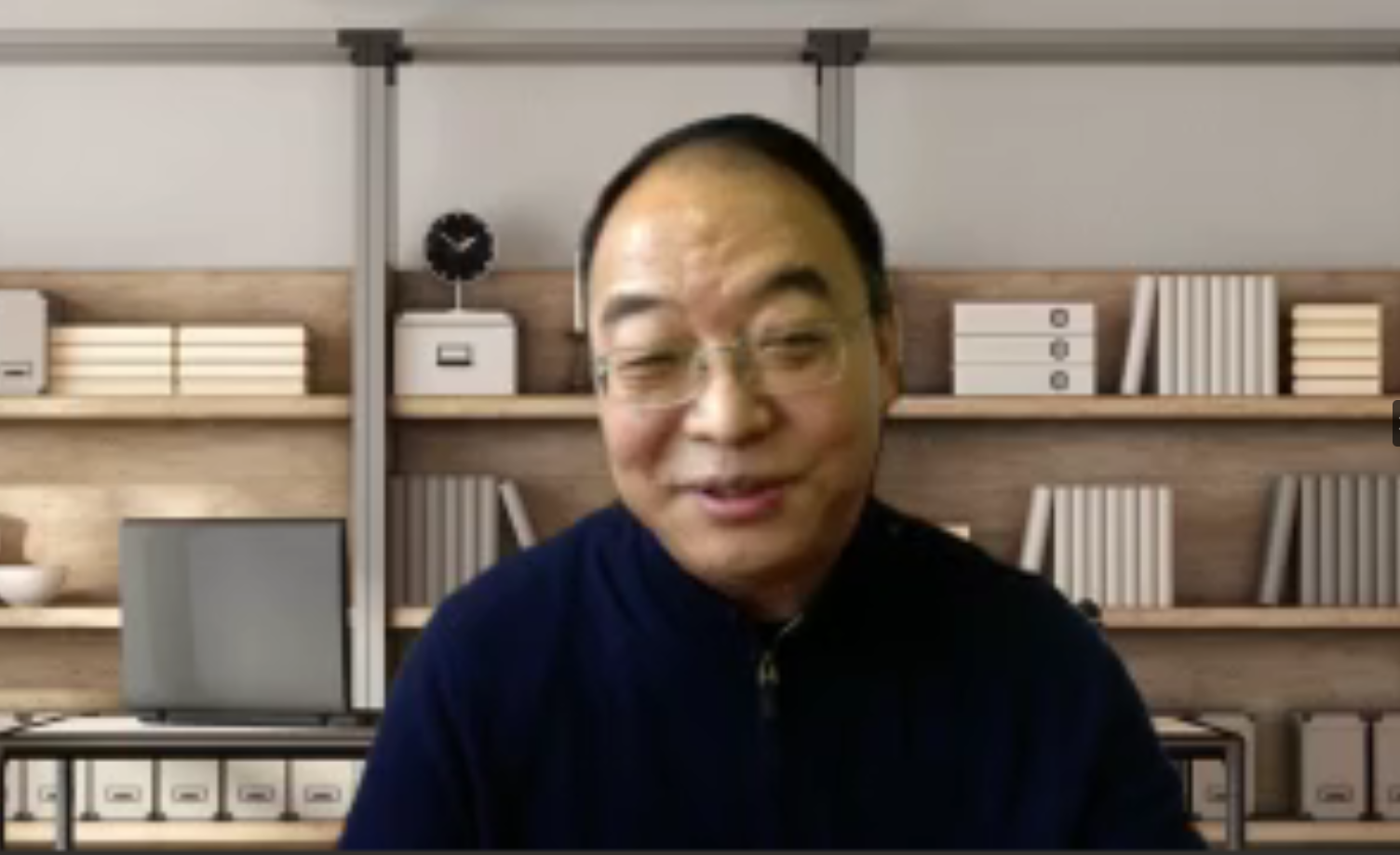
Roundtable Discussion:
Xu Qizhi from University of Science and Technology of China, shared the topic of “principles of visual perception in educational VR application”. Based on the perspective of cognitive psychology, Xu introduced the internal and external cognitive mechanisms and demonstrated the application of scientific visualization in teaching abstract concepts at K-12 level by using a case study.
Zhao Ruibin, associate professor of Jiangsu Normal University, shared the topic of "VR application for education: key technologies and typical cases", and considered that the core issue of virtual reality education application is the lack of high-quality resources and effective normalized education application. The key to the production of quality resources is fast and convenient 3D modeling and natural human-computer interaction for users, and the core of normalized educational applications is the analysis of pain points and the examinations of scientific concepts such as embodied cognition in the field.
Zhu Lixin, a senior engineer of the National Engineering Laboratory for Cyberlearning and Intelligent Technology, shared the topic of "Textbooks for Simulation Experiment". Mr. Zhu introduced the "micro textbooks" based on the concept, technology, structure and application of the instruction of simulation experiment, expecting to advance the instruction of simulation experiment.
Liang Haohui, Head of Investment Department of HTC China, shared the topic of "XR: the New Normal of working and learning". Based on the data from HTC's ecology, Liang pointed out that users currently desire natural interaction, immersion, vivid presentation and avatar roleplay in online activities. Besides, 3D spatial collaboration can enhance productivity and boost satisfaction and a sense of belonging by creating a psychological flow state for users.
Qian Xinyi, the operation manager of ARHT Media, shared the topic of "ARHT's Holographic Application". Qian introduced the basic principles of holographic projection and shared the technical solution of ARHT Media, which is expected to be applied in education as soon as possible.
This session was hosted by Qi Binbin, a postdoctoral fellow of Beijing Normal University.
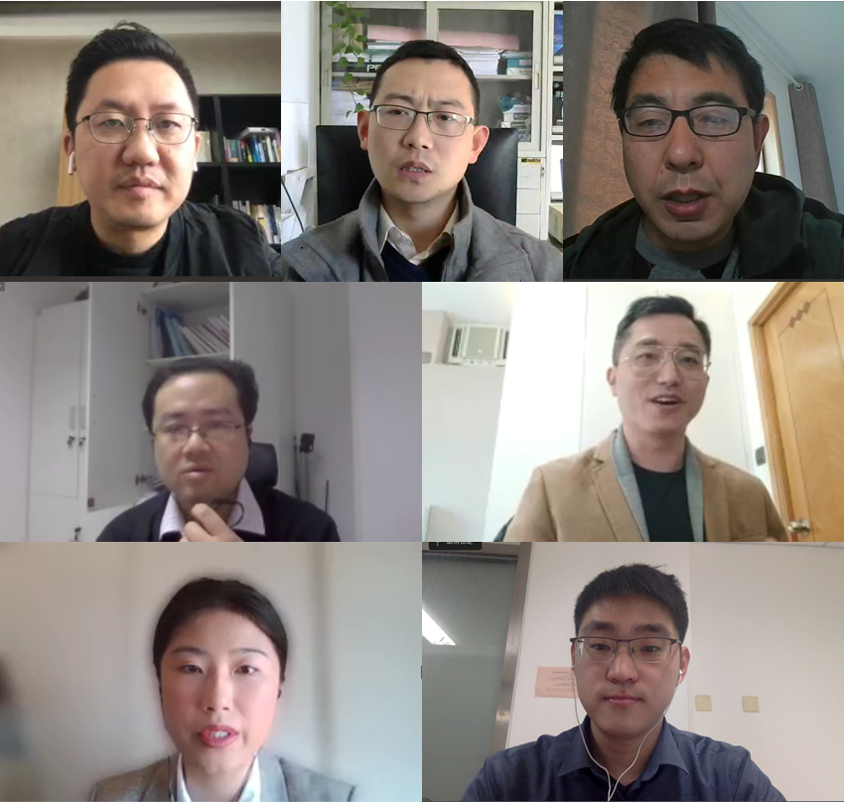
Learning Analytics Technology and Education Workshop
Keynote Report:
Associate Professor Li Shuang from Beijing Normal University presented a report named "Agile Educational Modeling with Human-Computer Augmented Intelligence Support". By analyzing the development of education in the context of personalization , the analysis and understanding of learning patterns, and the modeling process of various types of educational application models, Prof. Li believes that educational modeling should start from the basic laws of education to form feature extraction that satisfies the educational context, it should emphasize more on feature discovery based on causal models rather than terminating at the construction of relevant models, and it should focus on the formation of a collaborative human-computer modeling approach rather than pursuing algorithmic precision.
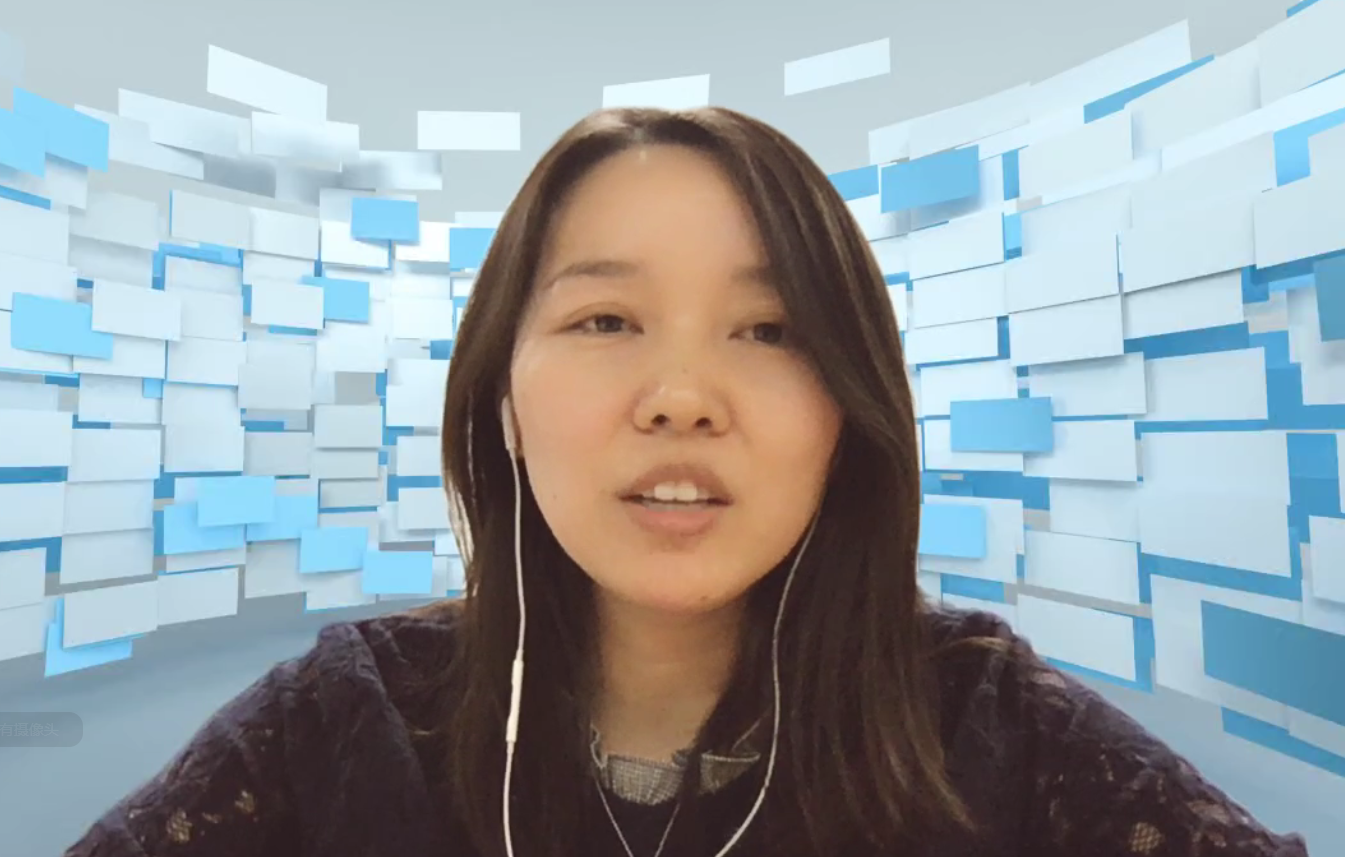
Roundtable Discussion:
The topic shared by Associate Professor Zhou Hyun Yu from Hunan Normal University is "Construction and Application of Knowledge Graph for Middle School Mathematics Based on the Fusion of Multi-source Heterogeneous Data", Professor Zhou explained the construction process of knowledge graph in detail by analyzing the construction and application of knowledge graph in mathematics teaching based on the special demand for online education during the CoVid-19 pandemic.
The topic analyzed by Ms. Xiong Luying from Meixiang School of Futian District Experimental Education Group in Shenzhen is "Research on Interaction Patterns in Learning Based on Learning Analytics". She used a complex network approach to summarize the laws of interaction in a connectivism curriculum through modeling.
The topic of "Driving Force behind Big Data in Education" was shared by Zhu Qianta, Product Director of Education Business Group of KDDI Co. Director Zhu analyzed and demonstrated the driving force behind educational big data in various aspects of education and teaching from the perspectives of teaching environment in the era of internet + education, teaching based on process + result big data, data index system architecture and the examples from real life.
Dr. Wang Huaibo from Beijing Normal University shared his thoughts on "Knowledge Graph Construction in Online Communities". Starting from the connotation of new concepts in the Internet era and the new representation of knowledge in online communities, Dr. Wang introduced in detail the construction process of networked knowledge graphs.
This session was hosted by Vice Professor Xu Pengfei from the College of Artificial Intelligence, Beijing Normal University.
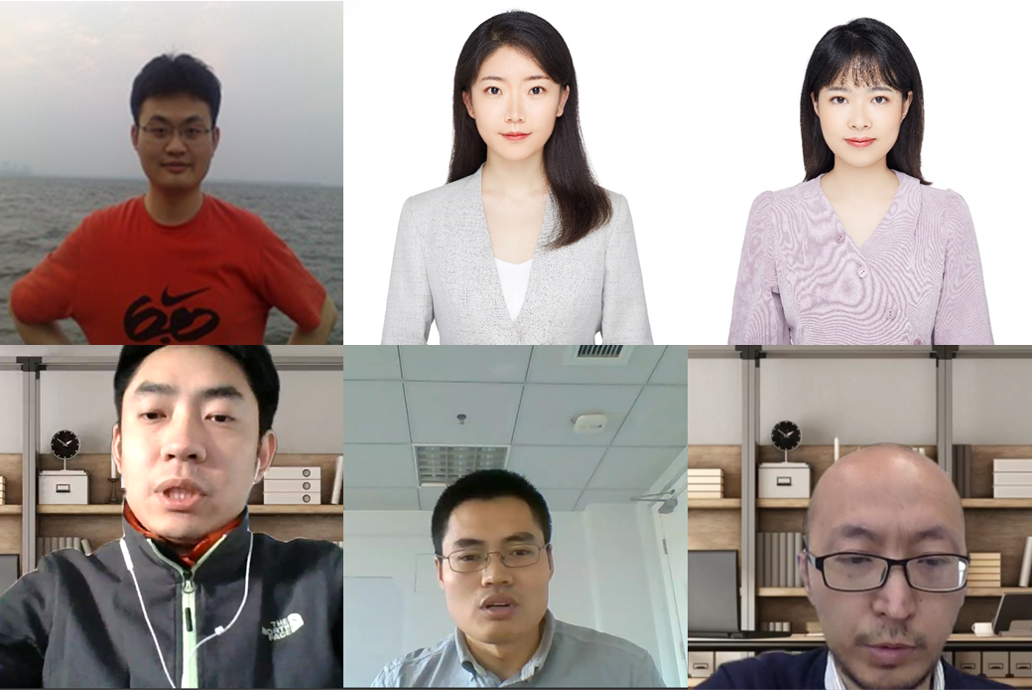
Artificial Intelligence and Education Workshop
Keynote Report:
Professor Wang Xiaoru from Beijing University of Posts and Telecommunications (BUPT) presented a report titled "Language & Algorithm & Thinking——Integrative Teaching". By analyzing the data of university students' informatics competitions, Ms. Wang proposed a new idea of integrative teaching of language, algorithm and thinking-the design of course curriculum in the way of "competition-led learning"; the emphasis on basic knowledge system and comprehensive application ability; the openness, multidisciplinary extension and intersectionality of course content; the cultivation of anti-pressure ability and teamwork ability; the assessment in the way of simulated competition, which eliminates the way of learning programming on paper rather than on computer caused by paper exams and strengthens students' awareness of engineering practice.
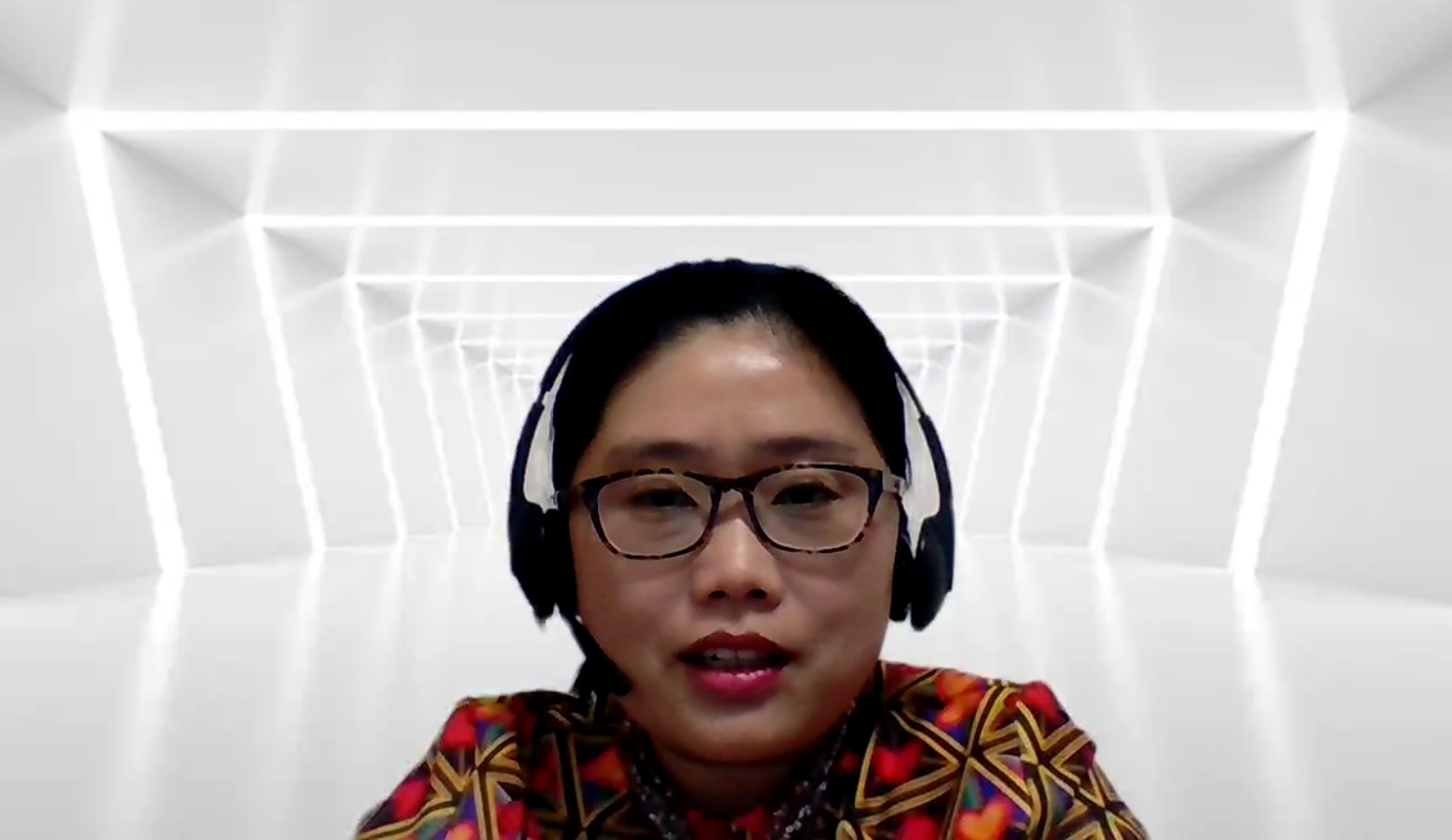
Roundtable Discussion:
Xiong Xueting, an IT teacher and researcher from Xicheng District Education and Training Institute in Beijing, shared the topic of "Ideas and Practice of Computational Thinking". Starting from the concept of computational thinking, Ms. Xiong believes that creating a good learning environment with hands-on experiments and real-world problem solving is a valid way to develop students' computational thinking skills.
Ms. Mao Chengjie, senior teacher of IT at Beijing Jingshan School, shared the topic of "How to Develop Students' Computational Thinking". Ms. Mao analyzed the ways to develop students' computational thinking and the measurement of computational thinking based on the analysis of the understanding of computational thinking, and introduced the case of teaching through the Breakout Clone game.
Wang Shuang, Director of Education Research Institute of Shenzhen Yuejiang Technology Co. Ltd, shared the topic of "Students' academic performance and the development of computational thinking skills". Mr. Wang presented in detail the case of performing the Computational Thinking Test among Mongolian students.
Chen Ying, a post-doctoral fellow at Beijing Normal University, shared the topic of "Research on Standards of K-12 Standards", Dr. Chen introduced relevant cases on curriculum standards and practices of IT/AI/programming education in the US, UK, Singapore, China, India, etc., and proposed questions worth thinking about in terms of setting educational goals, improving curriculum design, and collaboration among universities, research institutes and enterprises.
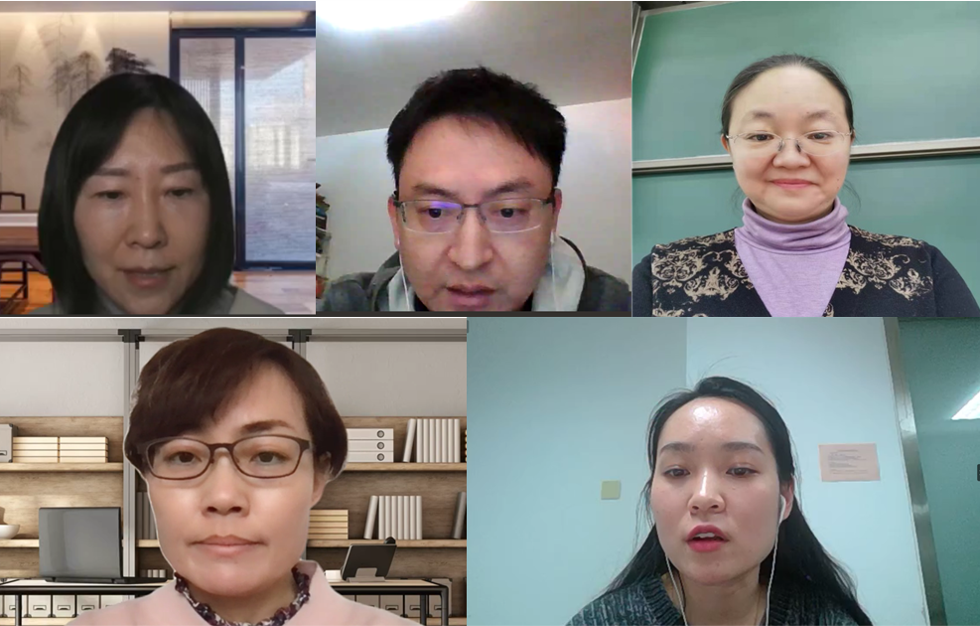
At the end of the conference, Tingwen Chang, assistant to the dean of Smart Learning Institute of Beijing Normal University, once again thanked the participants and the online audience. Dr. Chang summarized the achievements of the conference, and said that more and better conferences and events in the research areas of virtual reality, learning analytics and technology, and artificial intelligence will be held in the future to promote the bidirectional empowerment of education and technology.
